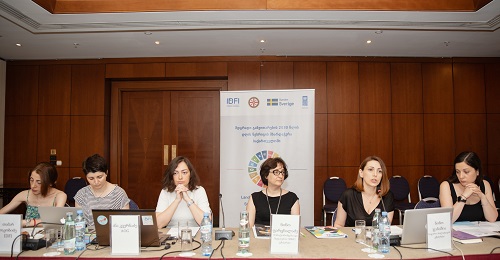
Meeting Minutes of the Working Group on Sustainable Energy & Environmental Protection of the SDGs Council Georgia
Working Group on Sustainable Energy and Environmental Protection of the #SDGs Council Georgia assessed the implementation results of Goals 7, 11, 12, 13, 14 and 15.